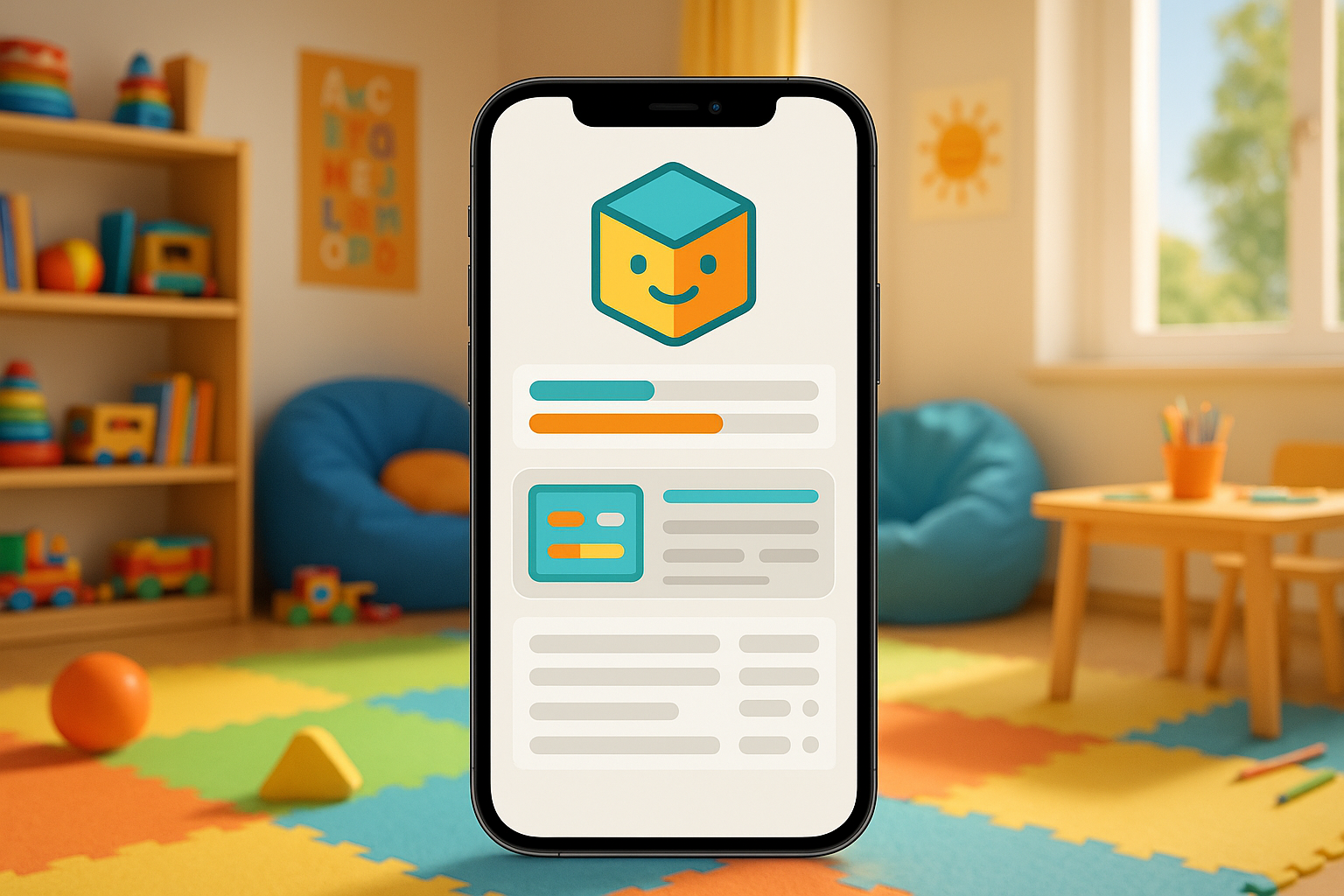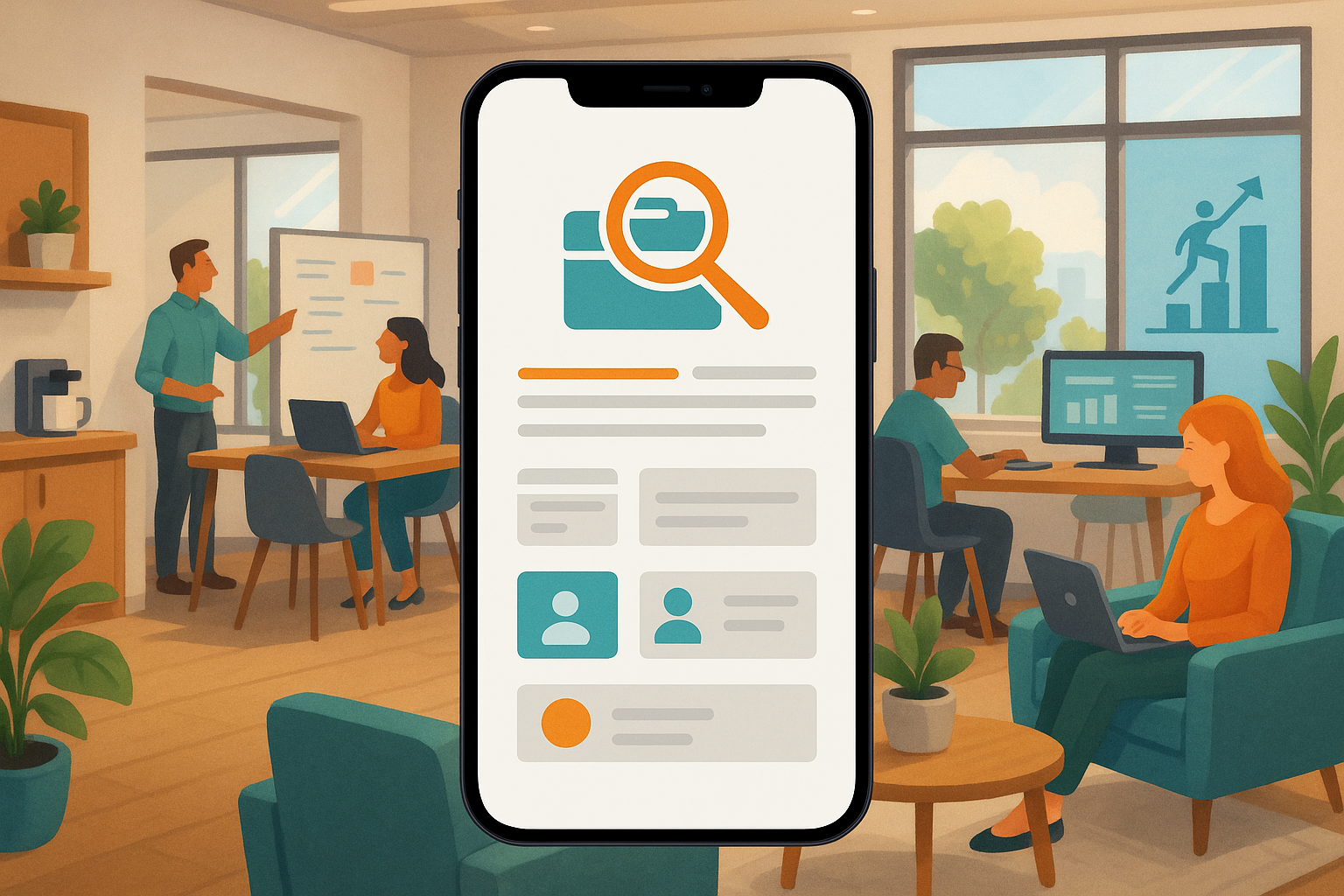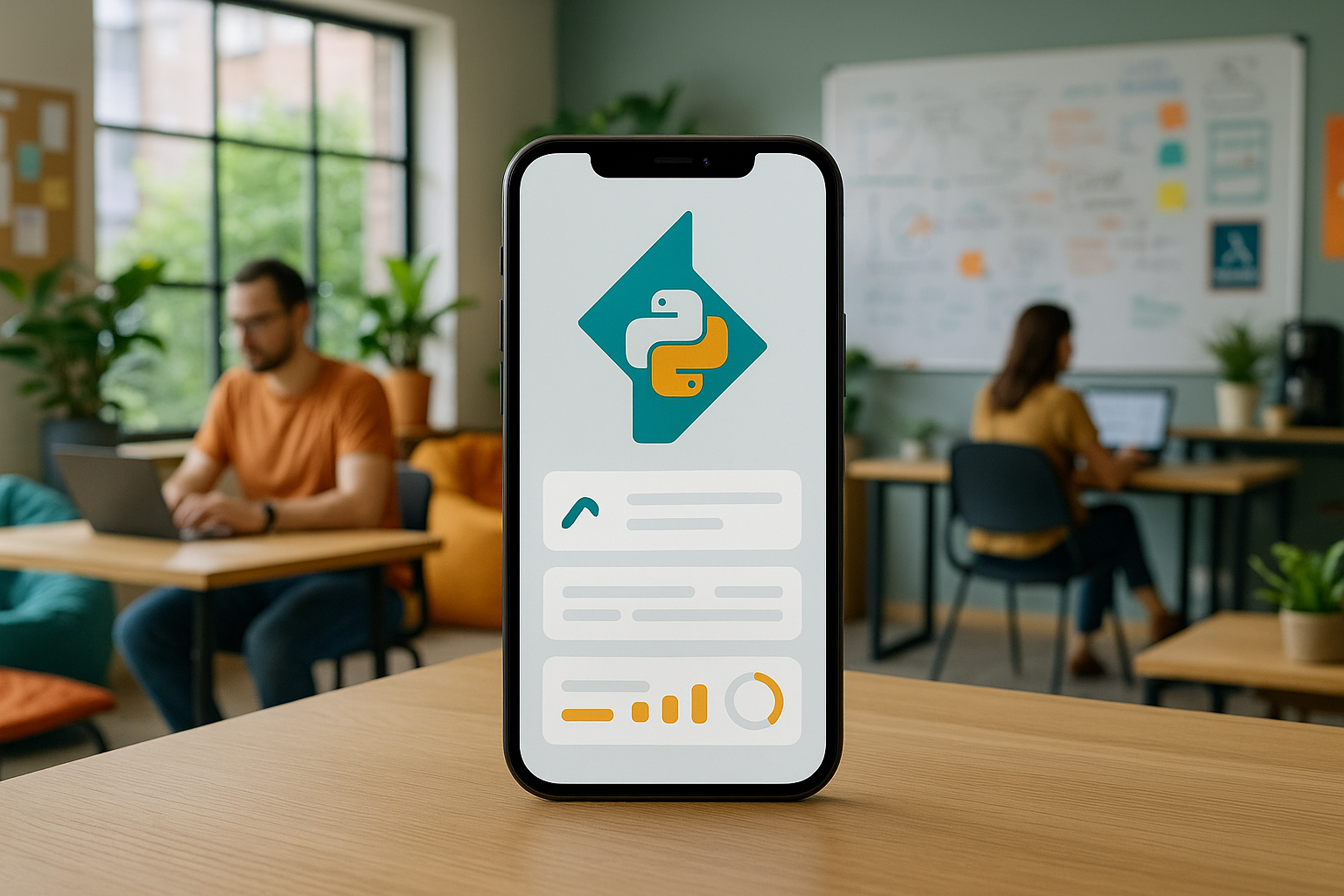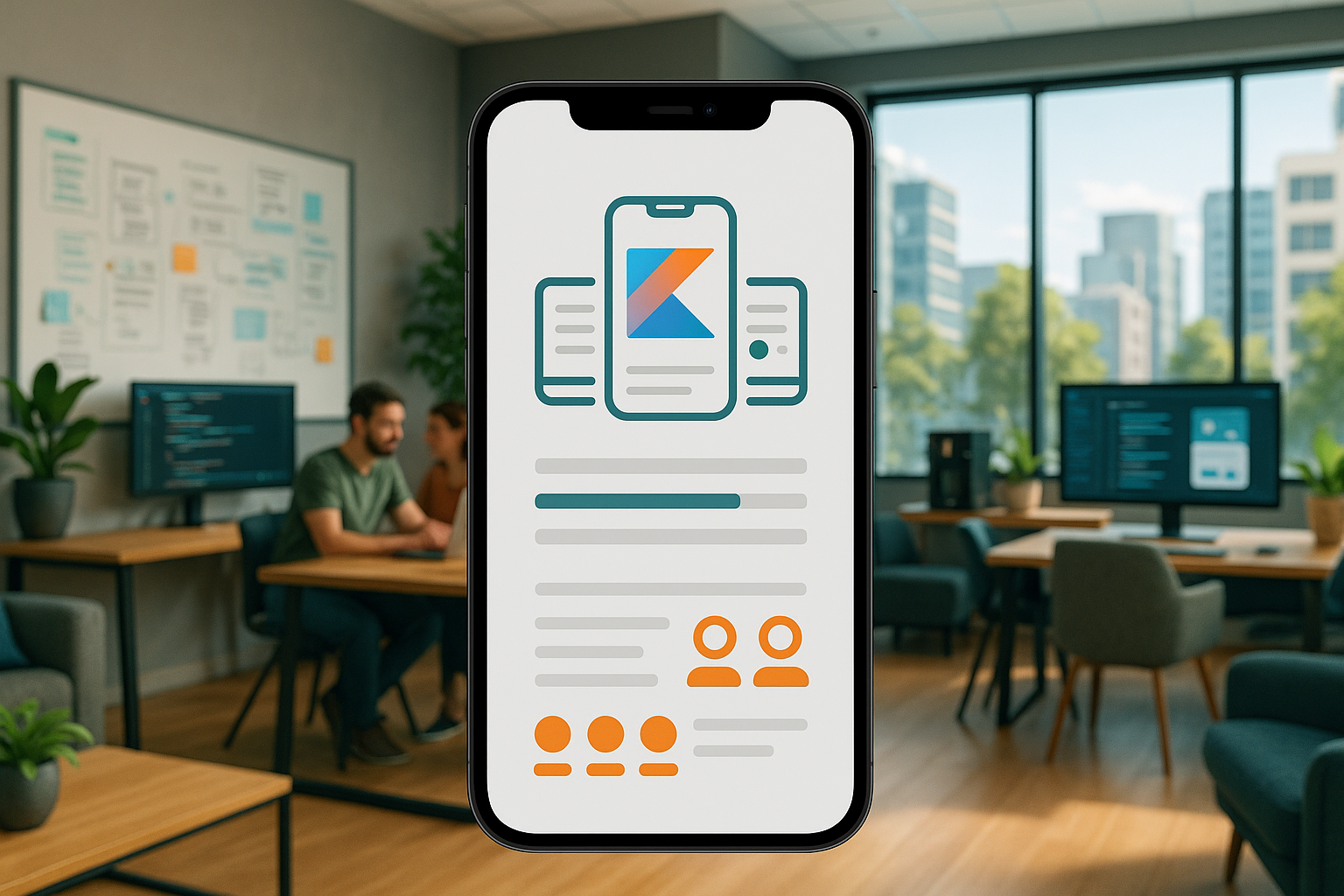Introduction
The digital landscape for children is expanding at an unprecedented rate, creating a massive opportunity for educational and entertainment applications. However, developing a successful kids’ app is far more complex than simply adding bright colors and cartoon characters to a standard application. Founders and product managers face a unique set of challenges, from navigating the stringent legal requirements of children’s data privacy to the pedagogical complexities of creating content that is both genuinely educational and captivating for young minds. An app that fails to clear these hurdles will not only struggle to find an audience but can also pose significant risks to both its users and its creators.
This article serves as a comprehensive guide to understanding the world of custom kids’ app development. We will explore what defines a kids’ app, dissect the formidable challenges of building one in-house, and make the case for why a custom development approach is essential for success. Furthermore, we will delve into the different types of kids’ apps, provide an estimate of development costs, and review the top development companies that specialize in this niche.
As a leading US AI-powered app development firm with over 20 years of experience and more than 100 apps launched, we at MetaCTO have seen firsthand what it takes to build a successful mobile application. We understand that turning a great idea for a kids’ app into a secure, engaging, and profitable product requires deep technical expertise and a nuanced understanding of the target audience. This guide will equip you with the knowledge you need to embark on this journey and explain how a partnership with an experienced agency like ours can help you navigate the complexities and build an app that children love and parents trust.
What is a Kids App?
At its core, a kids’ app is any mobile application designed specifically for children, typically ranging from toddlers to pre-teens. Unlike apps for adults, these applications are not merely scaled-down versions of existing software. They are purpose-built from the ground up to cater to the cognitive abilities, developmental stages, and interaction patterns of young users. This foundational principle influences every aspect of the app, from its user interface and content to its security architecture and monetization strategy.
The most prominent feature of a high-quality kids’ app is its focus on engagement through age-appropriate content. The challenge, as any educator or developer in this space knows, is ensuring this content aligns with specific learning objectives. For example, the non-profit Collaborative Classroom sought to create a game to help children learn reading and writing skills. The result was WordWorks, an application that teaches spelling and word categorization through interactive gameplay, demonstrating the “edutainment” model where education is seamlessly woven into a fun experience. Similarly, the Gurushala platform, built for the Vodafone India Foundation, incorporated games and reward systems to motivate both students and teachers.
Crucially, a kids’ app must also be a fortress of safety and security. Data privacy is not just a best practice; it is a legal and ethical imperative. When an app deals with children’s data, the stakes are exceptionally high, requiring robust security measures and strict adherence to regulations like the Children’s Online Privacy Protection Act (COPPA) in the United States. This focus on safety extends to the user experience itself, with features like flexible parental controls, as seen in the financial literacy app Edfundo, which allow guardians to track and guide their children’s activities within the app. Ultimately, a successful kids’ app is a delicate balance of education, entertainment, and uncompromising security, designed to provide a positive and enriching digital experience for its young audience.
Reasons That it is Difficult to Develop a Kids App In-House
While an in-house development team may possess significant technical skills, the specialized nature of kids’ app development presents a unique minefield of challenges that can easily overwhelm teams lacking specific experience in this domain. These difficulties extend far beyond coding and into the realms of child psychology, educational design, and international law.
Navigating Data Privacy and Security
This is arguably the single greatest challenge and the most significant risk. Educational apps, especially those for children, are held to the highest standards of data privacy. Laws around the globe strictly regulate the collection, storage, and use of data from minors. An in-house team without a dedicated legal and compliance expert specializing in children’s privacy is at a severe disadvantage. A single misstep can lead to crippling fines, reputational ruin, and the loss of user trust. Appinventiv’s work on Edfundo, which included implementing flexible parental controls and data analytics, highlights the necessity of building privacy-centric features from the start. This isn’t a feature that can be bolted on later; it must be part of the application’s core architecture, a task that requires specialized expertise.
Creating High-Quality, Engaging, and Age-Appropriate Content
The second major hurdle is content. It is incredibly difficult to create content that is simultaneously educational, engaging, and perfectly tailored to a specific age group. This task requires a rare blend of skills: curriculum developers, child psychologists, game designers, and storytellers. An in-house team of software engineers, however brilliant, is unlikely to possess this multidisciplinary expertise. The success of an app like WordWorks, which now has over 2 million users, was born from a partnership between Collaborative Classroom’s educational resources and X2 Mobile’s development prowess. This fusion of educational expertise and technical skill is the formula for creating content that genuinely resonates with children and delivers on its learning objectives. Without it, apps risk being either boring and educational or fun but devoid of real substance.
Specialized UI/UX Design for Children
Children do not interact with technology in the same way as adults. Their motor skills are less developed, their attention spans are shorter, and they respond more to visual and auditory cues than to text. Designing an intuitive user interface (UI) and a delightful user experience (UX) for children requires a specialized skill set. This includes designing larger tap targets, using simple and clear navigation, minimizing text, and incorporating immediate, rewarding feedback. An in-house team accustomed to designing for adults may overlook these critical nuances, resulting in an app that is frustrating for its target audience. Professional agencies specializing in this area, like X2 Mobile, offer dedicated UI/UX design and user research services precisely because it is such a critical and distinct discipline.
The Complexity of Parental Controls and Monetization
A kids’ app serves two audiences: the child using it and the parent who downloads it. This creates a dual-requirement for parental controls that are both effective and easy to use. Parents need to feel in control of their child’s experience, including screen time, content access, and in-app purchases. Implementing these features in a flexible and intuitive way is a significant technical challenge. Monetization is equally fraught with peril. Aggressive advertising or confusing in-app purchase models can quickly alienate parents. A successful strategy requires a delicate touch, often leaning towards subscription models or one-time purchases that are clearly communicated and managed through a secure parental gate. These are strategic decisions that benefit immensely from the experience of a seasoned development partner who has navigated these waters before.
Why Custom App Development for Kids is Essential
In a market saturated with generic educational apps, a one-size-fits-all approach is a recipe for mediocrity. Off-the-shelf solutions and template-based app builders may seem like a cost-effective shortcut, but they fundamentally fail to address the unique requirements of a truly great kids’ app. Custom app development is not just a preference; it is a strategic necessity for anyone serious about creating a safe, engaging, and successful product in this competitive space.
A custom approach allows for a perfectly tailored learning experience. Every child learns differently, and every educational philosophy has its own unique methodology. Custom development empowers you to build an app that precisely matches your learning objectives and pedagogical approach. When Collaborative Classroom envisioned a game to teach reading and writing, they didn’t look for an existing game engine; they partnered with X2 Mobile to build WordWorks from the ground up, ensuring the gameplay was perfectly aligned with their educational resources. This bespoke approach results in a more effective and coherent learning tool.
Furthermore, custom development is critical for building a strong brand identity and differentiating your product. A custom-built app gives you complete control over the UI/UX, character design, sound effects, and overall aesthetic. This allows you to create a memorable and unique world that captures children’s imaginations and stands out from the countless generic apps on the market. In a crowded app store, this unique brand identity is a powerful competitive advantage.
From a technical standpoint, custom development offers unparalleled scalability, flexibility, and security. An app built on a custom architecture can be designed to grow with your user base and adapt to new technologies. As your audience expands or as new educational trends emerge, your app can evolve. Techugo, for example, offers expertise in integrating advanced technologies like AR/VR and AI into educational apps, a level of innovation impossible with template solutions. Most importantly, a custom app allows you to build security and data privacy into the very foundation of the product. Rather than trying to patch a generic platform to meet stringent legal requirements, you can design a secure ecosystem from day one, ensuring the highest level of protection for your young users. At MetaCTO, we build apps designed to scale, leveraging our expertise in AI development and robust architecture to create future-proof solutions.
Different Types of Kids Apps
The world of kids’ apps is diverse, with various formats and approaches designed to cater to different learning styles and objectives. Understanding these categories can help you define the focus of your own project. Based on the successful applications developed by leading companies, we can identify several key types:
1. Educational Games (Edutainment)
This is perhaps the most popular category, blending education with entertainment to make learning feel like play. These apps use game mechanics—such as points, rewards, storytelling, and interactive challenges—to teach academic or life skills.
- WordWorks: Developed by X2 Mobile, this app teaches children how to spell and categorize words through interactive gameplay, making literacy practice fun and engaging.
- Gurushala: Built by Appinventiv, this platform incorporates games and reward systems to motivate both students and teachers, boosting engagement in the learning process.
2. Skill-Boosting and Tuition Apps
These apps are more focused than general edutainment and are designed to provide targeted instruction in a specific subject area. They often function as digital tutors, offering lessons, practice exercises, and assessments.
- Edfundo: This app, created by Appinventiv, is a prime example of a skill-specific app focused on improving financial literacy among children. It provides a safe environment for them to learn about money management.
- Language Learning Apps: Techugo’s work includes developing language learning apps, which provide structured lessons for acquiring new linguistic skills. Our own work on Parrot Club, a real-time peer-to-peer language learning app, falls into this category, connecting users for live practice.
3. Learning Management Systems (LMS) and Virtual Classrooms
These are comprehensive platforms designed for more structured learning environments, often used by schools, childcare centers, or homeschooling families. They provide a suite of tools for delivering curriculum, managing student progress, and facilitating communication.
- US Head Start Provider System: Altoros modernized an entire eLearning system for a US Head Start provider. By migrating the system, integrating video platforms like Vimeo, and building a mobile-first design, they created a robust LMS now used by over 1,600 childcare centers.
- Student Management Systems: Techugo develops various on-demand educational platforms, including comprehensive student management systems that help educational institutions manage their operations digitally.
4. On-Demand and Exam Preparation Apps
This category caters to students who need immediate help or are preparing for specific tests. These apps offer access to tutors, vast libraries of practice questions, and personalized study plans.
- Byju’s: While a massive platform, its core offering includes exam preparation modules. Techugo’s improvements to Byju’s, such as simplifying course purchasing and adding personalized features, enhanced its function as a premier exam prep tool.
Cost Estimate for Developing a Kids App
Estimating the cost of developing a kids’ app is complex, as the final price depends on a wide range of factors, including feature complexity, platform choice (iOS, Android, or both), design intricacy, and the geographic location and hourly rate of the development partner. However, by examining the data from top development companies, we can establish a general financial landscape.
The primary cost drivers are the hourly rate of the developers and the minimum budget required to engage them. Here’s a breakdown of the pricing from the companies we’ve reviewed:
| Company | Average Hourly Rate | Minimum Budget |
|---|---|---|
| Appinventiv | $25 | $25,000 - $50,000 |
| Altoros | $50 | $25,000 - $50,000 |
| X2 Mobile | $60 | $10,000 - $25,000 |
| Techugo | Inquire | Inquire |
As the table shows, rates and minimum project sizes vary significantly. A development partner based in India like Appinventiv may offer a lower hourly rate, while a European firm like X2 Mobile may have a higher rate but a lower minimum project threshold.
It’s crucial to understand what these numbers represent. A minimum budget of $10,000 - $25,000 might cover a relatively simple app with basic features, limited interactivity, and development for a single platform. This could be suitable for a Minimum Viable Product (MVP) designed to test a concept.
A mid-range budget of $25,000 - $50,000+ allows for more complexity. This could include:
- Cross-platform development for both iOS and Android.
- Custom animations and more sophisticated interactive elements.
- A backend server to manage user data and content.
- Integration of third-party services (like video streaming).
- Comprehensive parental control features.
For highly complex, feature-rich apps, especially those incorporating cutting-edge technology like AI, AR, or VR, the budget can easily exceed $100,000. The development of platforms like Byju’s or large-scale LMS systems represents multimillion-dollar investments over time.
At MetaCTO, we focus on efficiency and delivering value. Our 90-day MVP service is designed to take an idea to a market-ready app quickly, providing a strategic way to launch, gather user feedback, and iterate without a massive upfront investment. This approach allows founders to validate their concept and secure funding for future development.
Top Kids App Development Companies
Choosing the right development partner is the most critical decision you will make. The ideal partner brings not only technical prowess but also specific experience in the educational and children’s market. Here are some of the top companies specializing in this field.
1. MetaCTO
As a premier US-based mobile app development agency, we specialize in building, growing, and monetizing custom applications. With over 20 years of experience and more than 100 apps launched, we bring a wealth of strategic and technical expertise to every project. We understand that a successful kids’ app requires more than just code; it requires a deep understanding of user engagement, robust security, and a clear path to monetization. Our 5.0-star rating on Clutch is a testament to our commitment to delivering exceptional results.
Our work on Parrot Club, a real-time peer-to-peer language learning app, demonstrates our ability to build engaging educational platforms. We launched a two-sided marketplace that acquired 1,000 paid users in its first month and successfully converts 10% of customers to annual subscriptions. Our expertise in AI development, UX/UI design, and scalable infrastructure makes us the ideal partner for building the next generation of intelligent, intuitive, and secure kids’ apps. Our end-to-end services, from product design and discovery to app growth and monetization, ensure your vision is transformed into a thriving business.
| Key Details | |
|---|---|
| Best For | AI-Powered Educational & Kids’ Apps |
| Services | Mobile App Development, AI Development, UI/UX Design, App Growth & Monetization |
| Notable Project | Parrot Club (Real-time P2P language learning app) |
| Location | United States |
2. X2 Mobile
Based in Cluj-Napoca, Romania, X2 Mobile has carved out a niche as a dedicated builder of mobile apps and technology for the education sector. Their tools are used by over 2 million students across 1,300 school districts, showcasing their deep impact in the EdTech space. Their involvement with the European EdTech Alliance ensures their products adhere to the highest standards and best practices.
The company’s most notable project is WordWorks, an educational app developed in partnership with Collaborative Classroom. This app, which teaches children spelling and word categorization through interactive gameplay, now boasts over 2 million users and initiated a six-year partnership between the two organizations. X2 Mobile’s expertise in native iOS and Android development, combined with their focus on UI/UX design and user research, makes them a strong contender for educational game development.
| Key Details | |
|---|---|
| Best For | iOS and Android native app development |
| Avg. Hourly Rate | $60 |
| Min. Budget | $10,000 - $25,000 |
| Location | Cluj-Napoca, Romania |
| Founded | 2013 |
3. Appinventiv
Appinventiv is a global IT services powerhouse with a massive team of over 1,500 educational app developers. Based in Noida, India, they are positioned as an ideal partner for educational tech startups looking for scale and a wide range of services. They have delivered over 3,000 solutions and have helped their startup clients raise over $950 million in investment.
Their portfolio includes high-impact kids’ apps like Edfundo, a financial literacy app for which they built the end-to-end native mobile applications. Their work included flexible parental controls and data analytics, helping Edfundo secure $3.5 million in seed funding. They also built Gurushala for the Vodafone India Foundation, an online learning platform that onboarded over 150,000 teachers and students and received $2.1 million in funds. Their extensive service offerings cover everything from tuition apps and virtual classrooms to eLearning apps for the disabled.
| Key Details | |
|---|---|
| Best For | Educational tech startups |
| Avg. Hourly Rate | $25 |
| Min. Budget | $25,000 - $50,000 |
| Location | Noida, India |
| Founded | 2015 |
4. Techugo
Located in Dulles, VA, Techugo specializes in producing on-demand educational apps powered by cutting-edge technologies like artificial intelligence. With a portfolio of over 14,000 mobile apps and 50+ AI solutions, they have a proven track record of leveraging technology to improve the learning experience. Their expertise spans AR/VR, blockchain, and IoT, making them a go-to partner for innovative and technologically advanced educational projects.
Techugo’s most significant client is Byju’s, one of the world’s largest EdTech companies. Techugo improved the user experience for Byju’s by simplifying processes and adding personalized features based on data analytics. This work was instrumental in helping Byju’s gain over 150 million users, raise $5.6 billion in funding, and achieve an $18 billion valuation. This demonstrates Techugo’s ability to handle large-scale projects and deliver transformative results.
| Key Details | |
|---|---|
| Best For | On-demand educational apps powered by AI |
| Avg. Hourly Rate | Inquire |
| Min. Budget | Inquire |
| Location | Dulles, VA |
| Founded | 2015 |
5. Altoros
Founded in 2001, Altoros is a seasoned development company with a strong focus on legacy system modernization and custom educational software development. With a team composed entirely of mid-level and senior-level engineers, they bring a high degree of expertise to complex technical challenges. Their global presence, with seven offices and over 350 remote team members, allows them to serve a wide range of clients, including major brands like Samsung and Toyota.
A standout project for Altoros involved partnering with a US Head Start provider to improve its eLearning system and mobile app. Altoros migrated the entire system from Windows Forms to Angular, integrated Vimeo for video content, and developed a mobile-first UX/UI design. This technical overhaul resulted in a 20x reduction in server response time and led to the app’s adoption in over 1,600 childcare centers, showcasing their ability to execute complex technical modernizations that deliver tangible performance improvements.
| Key Details | |
|---|---|
| Best For | Legacy system modernization |
| Avg. Hourly Rate | $50 |
| Min. Budget | $25,000 - $50,000 |
| Location | Buenos Aires, Argentina |
| Founded | 2001 |
Conclusion
The journey to creating a successful kids’ app is both challenging and immensely rewarding. As we have explored, this specialized field demands more than just technical skill; it requires a deep commitment to child safety, a nuanced understanding of educational design, and a strategic approach to creating an engaging user experience. The complexities of data privacy and the high bar for quality content make in-house development a formidable task for those without specific expertise. For these reasons, a custom development approach with a seasoned partner is not just a viable option but the most effective path to building a high-quality, secure, and competitive product.
Throughout this guide, we’ve covered the essential elements of this process: defining what makes a great kids’ app, understanding the different types, estimating potential costs, and reviewing the top companies that can bring your vision to life. The success stories of apps like WordWorks, Edfundo, and Byju’s underscore a common theme: a successful product is born from a powerful idea combined with expert execution.
Building an app that can positively impact a child’s learning and development is a significant undertaking. It requires a partner who understands the stakes and possesses the experience to navigate the unique challenges of the industry. If you are ready to create an exceptional app for kids, the first step is to speak with an expert who can help you chart the right course.
Ready to build an app that children love and parents trust? Talk with a Kids app development expert at MetaCTO today to discuss your vision and learn how we can turn your idea into a market-ready reality.






